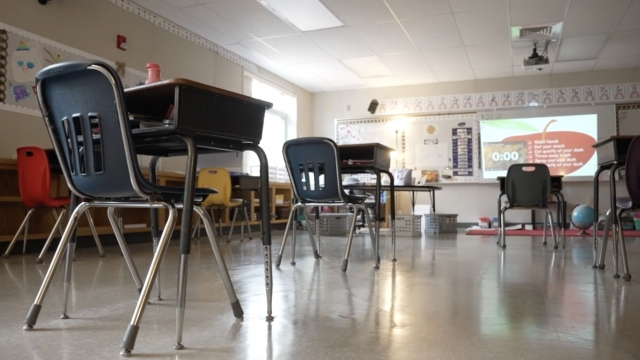When Andrea Starlin first started noticing her sons struggling in high school, her first instinct as a mom was to try to help.
"I think the most defeating thing is a lot of times, these are gaps I can't solve because I'm not a teacher. I'm not a mathematician," the Denver-area mom said.
To help fill those academic gaps, Starlin has relied on private tutors to help her kids overcome academic hurdles. Lately, though, it's been nearly impossible to find a tutor when she needs one. And Starlin isn't alone, as there is a massive shortage of tutors nationwide.
"Finding the right tutor is like finding a needle in a haystack or winning the lottery. And finding them at the right time is a stroke of luck," Starlin added.
Nationally, only about 10% of students are receiving "high-dosage" tutoring multiple days a week, according to the Department of Education. Many experts say more tutors are needed to help kids who are still suffering from academic losses suffered because of virtual learning during the pandemic.
"We're still trying to regain ground lost during COVID," said Tom Pollak, the director of the DC Tutoring and Mentoring Initiative.
The tutor shortage, many education experts say, is largely connected to the current teacher shortage. Scores of academic professionals have left education in recent years, meaning there just aren't enough educators to help fill the tremendous demand for tutors right now.
"Having that adult who can help you understand that missing knowledge — it can make a world of difference," Pollak added.
SEE MORE: The child care cliff: 2 states fight to keep care programs alive
The shortage couldn't be happening at a worse time. The NWEA estimates that the average student needs about 4.1 months of additional schooling to catch up in reading and 4.5 months to catch up in math following the pandemic. This leaves parents and students struggling to overcome academic hurdles.
"Having that one-on-one time with someone else — there is the academic dimension and the interpersonal-emotional dimension," Pollak said.
Trending stories at Scrippsnews.com





